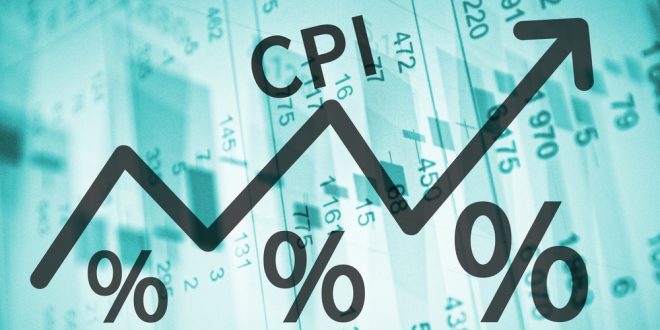US consumer prices have surged well above expectations, raising further concerns about price pressures and pushing investors in global financial markets toward expectations and bets that the Fed will raise interest rates in March to levels that exceed current expectations.
The annual US Consumer Price Index (CPI) is 7.5% higher than the previous reading of 7.00%, and higher than the forecast of 7.3%.
The annual US Consumer Price Index excluding food and energy prices rose to 6.00% from the previous reading of 5.5%, and forecasts of 5.9%.
As for markets’ reaction; Wall Street stocks fell strongly, influenced by rising inflation concerns and the negative impact they could have on the performance and future trajectory of the US economy.
On the other hand, the US dollar has briefly risen and continued to climb since the data was released, the USD stumbled despite expectation that it could continue to climb at least until the end of the current trading day.
Gold fell under pressure from the rise that the US dollar, but gold prices seized the opportunity of a weaker USD to jump again after CPI data, later on the session, gold prices bounces sharply on a volatile session. Following CPI data, XAU/USD tumbled to $1821, hitting a two-day low. A few minutes later, it rebounded above $1830, approaching weekly highs. The rebound suggests some underlying strength, but it needs to break firm above $1835 to open the door to more gains.
Inflation data released at the beginning of the US session raised expectations that the Fed may be too close to raising interest rates by 0.5% to resist the rocketing rise in inflation, leading to a higher cost of borrowing, which in turn leads to a negative environment for US stock transactions that rely on borrowing for fiscal growth and thus begin to appeal to investors to decline.
Indices fell following the release of those data. The Dow Jones Industrial Average fell about 120 points, or 0.4%, with the Nasdaq heavy technology industry down 0.5%, or 57 points, with the S&P 500 down 20 points, or 0.5%.

 Noor Trends News, Technical Analysis, Educational Tools and Recommendations
Noor Trends News, Technical Analysis, Educational Tools and Recommendations




